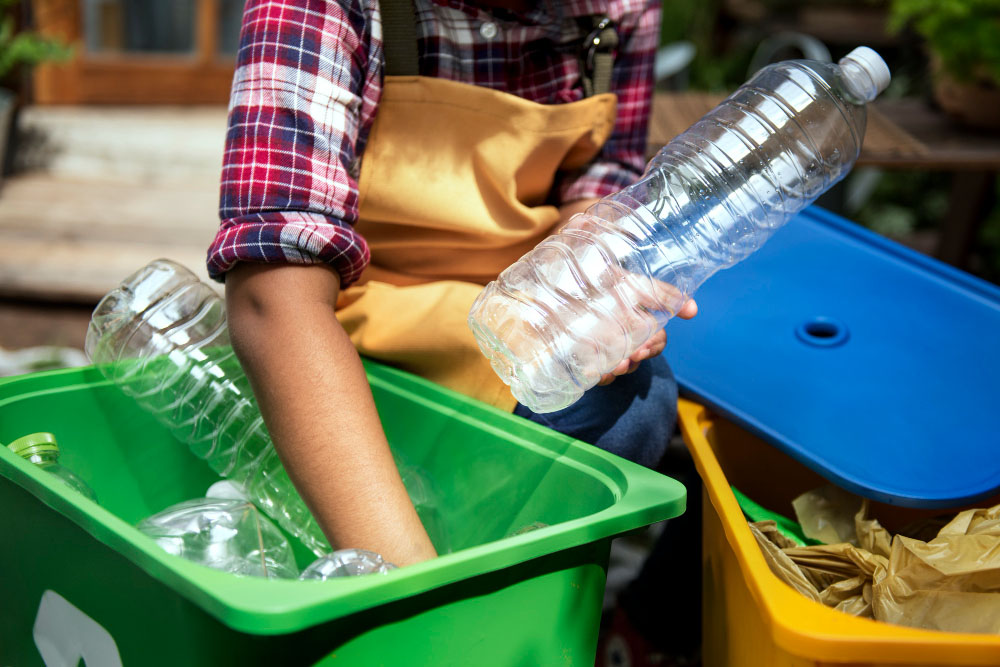
In today's world, the importance of recycling cannot be overstated. With increasing environmental concerns and the push for sustainability, recycling centers play a crucial role in waste management and resource conservation. If you're based in New Jersey and are seeking a reliable recycling center, All County Recycling is your go-to solution. This guide will walk you through the processes employed by All County Recycling Center, giving you a comprehensive understanding of how materials are managed and recycled.
Recycling is a multi-step process that transforms waste materials into new products, conserving natural resources and reducing pollution. The core stages involved typically include collection, sorting, cleaning, processing, and remanufacturing. Each phase is critical to ensure the efficiency and effectiveness of the recycling process. At All County Recycling Center, each of these steps is meticulously handled to guarantee that waste is transformed into reusable materials.
The recycling process begins with the collection of materials. All County Recycling Center offers efficient collection services throughout New Jersey. Whether it's from residential areas, commercial entities, or industrial sectors, the center ensures that recyclable materials are gathered systematically. Using a fleet of eco-friendly vehicles, the materials are transported to the facility for further handling.
Once the materials arrive at the recycling center, the next step involves sorting. Efficient sorting is crucial to the recycling process, as it determines the quality of the end product. At All County Recycling, state-of-the-art machinery and manual labor are employed to separate materials based on type—such as paper, plastics, metals, and glass. Advanced optical sorters and magnets are used to facilitate the categorization process, ensuring precision and speed.
Paper and cardboard are among the most commonly recycled materials at the center. Using specialized equipment, paper products are sorted according to their grade and quality. They are then bundled and sent to paper mills where they are processed into new paper products.
Plastics are sorted by type and resin identification code. This meticulous sorting ensures that each type of plastic is processed correctly, maximizing its potential for reuse. Only clean, uncontaminated plastics are forwarded for processing.
Both ferrous and non-ferrous metals are sorted using powerful magnets and eddy current separators. This ensures that metals are efficiently separated and directed toward their respective recycling pathways.
Glass bottles and jars are sorted by color – clear, green, and brown. This color-specific sorting aids in maintaining the quality of recycled glass products.
Post-sorting, the materials undergo a thorough cleaning process. This is essential to remove any impurities or contaminants that may interfere with the recycling process. For instance, plastics are washed to eliminate labels, adhesives, and residues. Similarly, metals and glass are cleaned to ensure that no foreign materials alter their recycling efficiency. All County Recycling Center uses eco-friendly cleaning agents and methods, adhering to sustainable practices.
Once cleaned, the materials are ready for processing. Each material type has a distinct method of transformation. Here's how All County Recycling transforms some of the most common recyclables:
The sorted paper is combined with water and chemicals to break it down into pulp. The pulp is then cleaned, de-inked, and refined before being rolled into new sheets of paper.
Plastics are shredded into small pieces and melted down. This molten plastic is then molded into pellets, which serve as raw materials for manufacturing new plastic products.
Metals are melted down in large furnaces. Depending on the type, the molten metal is then cast into ingots or sheets, ready for use in creating new metal products.
Glass is crushed and melted at high temperatures before being molded into new glass products. The color sorting ensures that the recycled glass maintains its quality and luster.
The processed materials are then shipped to various manufacturers to be transformed into new products. This step not only conserves resources but also reduces the need for raw materials, ultimately benefiting the environment.
All County Recycling Center is dedicated to promoting sustainable practices and reducing the carbon footprint. Their commitment to excellence and adherence to environmentally friendly processes make them a leader in the recycling industry in New Jersey. By choosing All County Recycling, you're not just disposing of waste; you're contributing to a greener planet.
Recycling is a collective effort that requires participation from individuals, businesses, and communities. Here are a few ways you can contribute:
If you're looking for a reliable recycling center in New Jersey, contact All County Recycling today for a free consultation. Our experts are ready to guide you through the process and ensure that your recycling efforts make a positive impact.
Recycling is not just about waste management; it's about creating a sustainable future for generations to come. With centers like All County Recycling leading the charge in New Jersey, we can collectively work towards a cleaner, greener world. By understanding the processes involved and actively participating, you contribute to the collective effort of preserving our planet's resources. Reach out to All County Recycling for a free consultation and take the first step towards responsible recycling today.